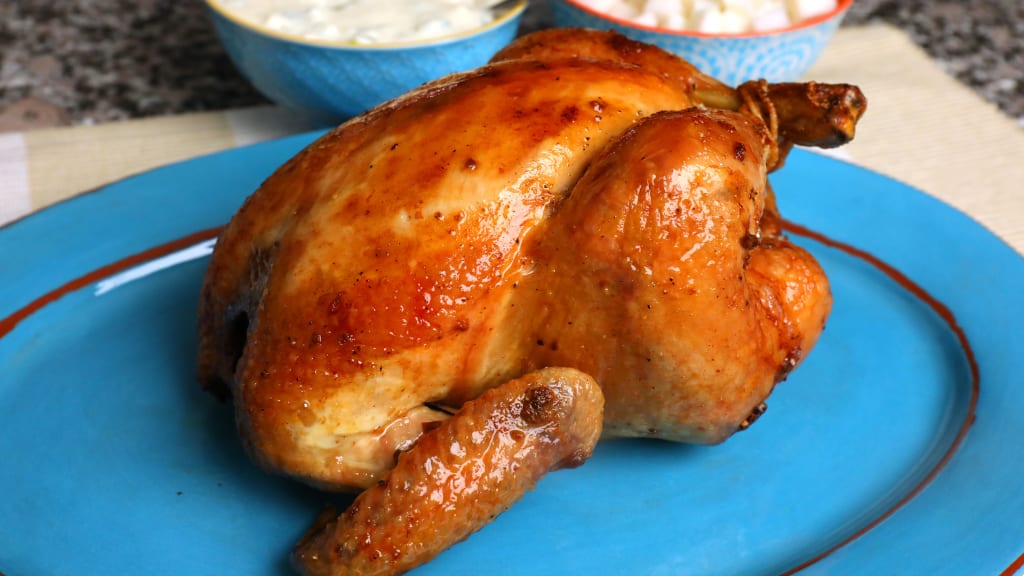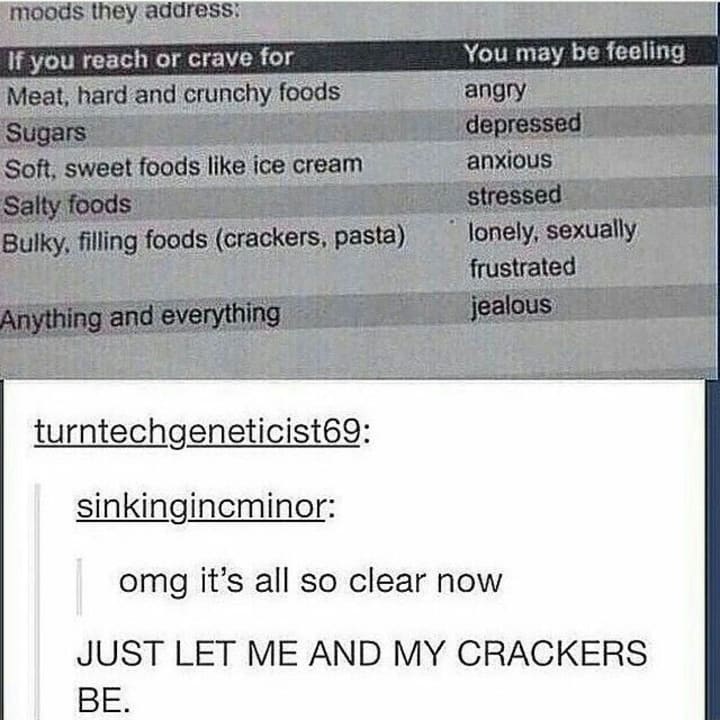Chicken and Cheddar Cheese
How the foods you eat can affect your mental health

Disclaimer: I am not an accredited nutritionist, researcher, or mental health professional. Everything within this article is pure speculation based on brief research, and without personal examination and consultation with a few professionals, I cannot say that anything here should be taken as fact.
So lately, because my tendencies have been toeing the line between truly healthy eating habits and anorexia nervosa, I have begun seeing a nutritionist.
Which, by the way, if you are able to readily access a nutritionist, whether it be offered through your university like mine is or you have the means to afford it, I highly recommend. Going to a nutritionist was one of the best decisions I have made thus far, especially on my personal mental health and wellness journey.
And working with my nutritionist, I've started to tackle a major issue of mine that I daresay many of us experience: emotional eating. It's exactly like it sounds; rather than eating because of a typical hunger cue or craving, one will begin to desire food despite reaching the point of satiety or despite their own personal conclusion that they should not eat at that moment in time.
Many people eat out of boredom, but I have personally been known to eat out of loneliness, shame, or awkwardness. I can remember many a time in my most depressive episodes where all I wanted to do was to eat; to feel anything at all.
However, sometimes emotional eating isn't as clear cut as "eating when you're full." Many a time, the foods you might be craving at normal mealtimes can attribute themselves to emotions as well.
The first time I came across the idea of specific foods having specific emotional meanings was a rather popular Tumblr post:

Now, for many, these made perfect amounts of sense, but for me, not so much.
You see, consistently over the last two years or so, my main cravings have been quite simply Meat and Cheese.
One quick side note for reference: I am an Eastern Orthodox Christian, which is one of the two original Christian factions (the other being Catholic) and proclaims itself to be very traditional and "original" as the name orthodox implies. Orthodox Christianity is often also characterized by its stricter fasting rules and more frequent Lenten periods. Additionally, since the age of 8 or 9, on Wednesdays and Fridays, I have been consistently fasting from animal products, and going vegan also for all five Lenten periods of the year.
In essence, since childhood, I have fasted from the two foods I now crave most; meat and cheese.
Back to food and Mental Wellbeing...
Despite this history of fast periods, the craving remains consistent, even during times when I give up fasting. I wanted to see if there was potentially another root cause for my consistent craving of these foods. And sure enough, a brief Google search and a few quick reads later, I had an answer that made logical sense.
The naturally existing chemicals in our food interact in our bodies in many ways, and many of the chemicals in food play a direct role in the production of neurotransmitters.
So then, what did I find?
I have struggled with depression for the majority of my life. The root of that depression, however, remains unclear. There are many hypotheses, ranging from trauma in my past to genetic predisposition. But beyond my personal life, one, very old hypothesis for general mood disorders is that they all, at their root, have something to do with a funky little neurotransmitter called serotonin.
According to Phillip J. Cowen's article, What has serotonin to do with depression (1) research has found that the long-standing hypothesis that low serotonin levels or damaged serotonin function leading to mood disorders is neither true nor false;
"evidence suggests that impairing serotonin function can cause clinical depression in some circumstances, but is neither necessary nor sufficient."
However, the studies he references refer to a test called tryptophan depletion as their main mode of testing serotonin levels and depression.
What the fork is tryptophan depletion?
Tryptophan is a compound essential (and I mean essential) to the production of serotonin in the body. Your body cannot produce tryptophan, and thus you must get it from the food around you.
Tryptophan depletion, then, is just denying yourself that chemical in order to test how your serotonin production reacts. This, in essence, was the first experiment referenced in Cowen's article to properly assess the link between serotonin levels and mood disorders.
If you've heard of tryptophan, you likely know it from the popular Thanksgiving myth that turkey makes you sleepy due to the chemicals within it, and that the excessive drinking and overeating have nothing to do with your incredible desire to take a nap. Through a little bit of googling and Tanya Lewis's article Thanksgiving Myth Busted: Eating Turkey Won't Make You Sleepy, (2) I stumbled across another connection.
Gram for gram, cheddar cheese actually contains more tryptophan than turkey does.
You hear that? Cheese. Cheddar Cheese. Something very major on my cravings list. Additionally, the article points out that pretty much all poultry has the same levels of tryptophan as turkey does, which means that my constant craving for meats, especially chicken, may have a different root cause other than consistent deprivation from fasting.
To tie it all together
Cowen's article on serotonin does make an important distinction in the research findings; depriving people of tryptophan only really caused a brief depression if their serotonin levels were already impaired, i.e. if they'd had depression before or were struggling with it. If they hadn't ever experienced abnormal serotonin levels, whether or not they had tryptophan didn't matter.
So don't worry, you won't get depressed if you go vegan, provided you are mentally healthy.
But for me, someone with a history of mood disorders, it seems there is some risk, and possibly a chance to alleviate some of my symptoms by pausing my fasting habits and letting my body reach a kind of homeostasis.
Essentially, it might be possible for me to be less depressed if I listen to the cues my body is giving me to eat meat and cheese. It may even explain why, when I get chicken and cheese in any amount, I cannot bring myself to stop eating it. I recall one night I accidentally ate half a can of spray cheese, just because it tasted like salty heaven to me, and I couldn't figure out for the life of me why.
How cool is that?? To have a potential explanation?
So then, food and mood
While not every food has such a drastic impact on emotional well-being, there remains strong connections between certain foods and certain kinds of emotional eating. As for damages or benefits, my nutritionist has always told me that it is often up to you to assess whether or not you should emotionally eat. Sometimes it is okay to eat a pint of ice cream because you're sad, or to eat a roll of crackers because you are angry.
Ultimately, you decide what you eat, and why you eat. The power is in your hands.
So, there you have it, folks. Chicken and Cheddar Cheese, nature's anti-depressant foods.
I'm a Wandering Wonderer, and I thank you for reading my ramblings.
Stay curious.
References
(1)What has serotonin to do with depression?—https://www.ncbi.nlm.nih.gov/pmc/articles/PMC4471964/
(2)Thanksgiving Myth Busted: Eating Turkey Won't Make You Sleepy—https://www.livescience.com/41543-thanksgiving-myth-busted-eating-turkey-won-t-make-you-sleepy.html
(3) What Your Food Cravings Mean and How to Overcome Them—by Doreen Virtue (tis a book, search if you wanna read more.)






Comments
There are no comments for this story
Be the first to respond and start the conversation.